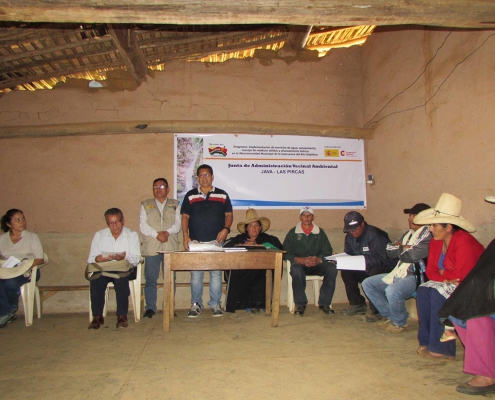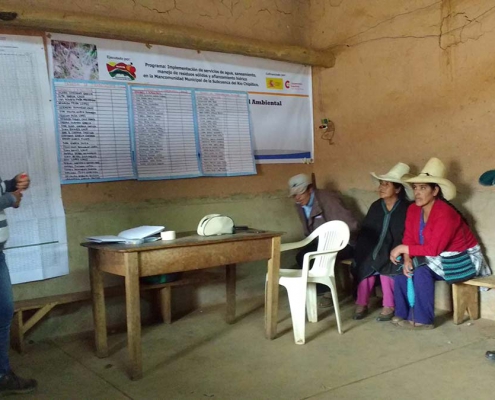Peru

Peru is one of the richest countries in terms of water resources, but its distribution across the country is uneven, with the majority of the population (62.5%) living in the dry coastal desert area of the Pacific basin with only 2.5% of the country’s available water.
The gaps in access to water and sanitation services also reflect the inequality between urban and rural areas. Despite the efforts made by the country in recent years, it is estimated that in rural areas 25.3% of the population does not have access to public water networks and 76.3% to public sewage networks. This urban-rural inequality also extends to water quality, with only 2.2% of the population in rural areas having access to chlorinated water.
The programmes of the Cooperation Fund for Water and Sanitation (FCAS) (three bilateral programmes and one multilateral programme managed by the IDB) amount to €65 million in Spanish donations and €195 million in local contributions. This portfolio aims to meet the needs of more than 145,000 inhabitants of the most disadvantaged rural areas. The programme with the largest volume of funding, implemented by the National Rural Sanitation Programme (PNSR), completed its implementation in December 2018 very satisfactorily. Another programme, with the Mancomunidad Municipal de la Subcuenca del Río Chipillico (MANCHI), had very significant difficulties and ended without completing its implementation, returning €5.6 million in 2020.
The Spanish Cooperation’s water operations in Peru in 2020 are mainly focused on remote and dispersed mountain populations. In many cases, these are rural communities who have specific needs and their own worldview.
More information

There is currently only one project under implementation, the PER-029-B bilateral programme in the Association of Municipalities of the Santo Tomas river (AMSAT), which aims to provide water and sanitation services to rural communities in five districts in the regions of Cusco and Apurímac, bringing the service to more than 5,300 people.
The programme is being implemented by the National Rural Sanitation Programme (PNSR) of the Ministry of Housing, Construction and Sanitation (MVCS), thanks to a collaboration agreement signed between the association of municipalities and the ministry. During 2020, progress was hampered by the quarantines and restrictions on mobility caused by the COVID-19 pandemic in Peru, for which reason an extension of the execution period until December 2021 was applied for.
Nevertheless, and even in this difficult context, it was possible to make progress in finalising and approving all the designs, in organising the execution centres in the communities where the intervention is to be carried out – the planned execution method – and in transferring the resources to them before the end of the year in compliance with the regulations.
In addition, it has been possible to make progress on the only work that had begun before the start of the pandemic and to start two new works, out of the total of 13 planned, before the end of the year.
During 2020, two professionals from the local partner (PNSR) were also involved in training on the Human Rights to water and sanitation.

